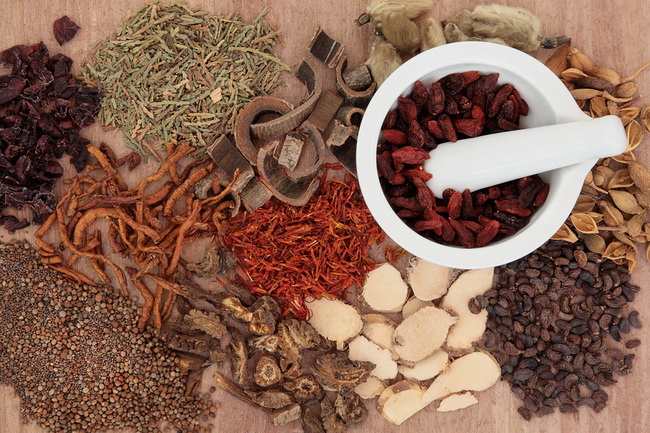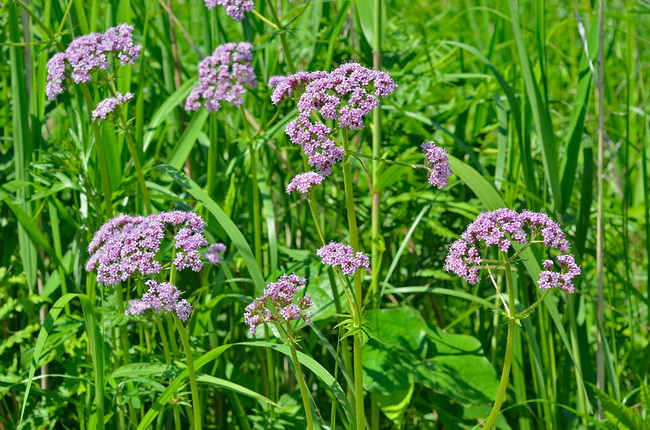- Make It Yourself Lavender Heart-Shaped Bath Bombs!
- 20 Things You Never Knew About “Down There”
- 12 Best Foods For Those Suffering From Arthritis Pain
- 12 Personal Hygiene Mistakes Almost Everyone Makes (Mom Never Told You About #4!)
- 15 Medicinal Plants And Herbs From The Cherokee People
- 12 Mind-Blowing Benefits Of Drinking Coconut Water During Pregnancy
- 12 Outstanding Winter Foods That Won’t Fatten You Up Like A Christmas Turkey
Top 12 Herbs to Kick Insomnia to the Curb

Photo credit: bigstock.com
Although almost everyone has a bad night every now and then, some people seem to have more difficulty sleeping than others. Of all the health problems concerning a lack of sleep, insomnia is perhaps the least researched, even though it the most common problem.
If you suffer from frequent bouts of insomnia, then you most likely also experience headaches, mood swings, fatigue, and lack of motivation. It’s hard to get up and get going when your body feels like it’s running through water. Insomnia is often caused by an imbalance of chemicals in the brain such as serotonin, which is vital for regulating our moods. Insomnia is estimated to affect about 30 percent of the population at one time or another.
Although many people turn to sleeping pills or alcohol to sleep, these can be addicting and dangerous, even deadly when combined. Scientific research shows that there are numerous natural herbal remedies for treating insomnia.
Try one of these 12 herbal remedies before you resort to chemical means that might only make your sleeping problems worse.
1. Kava Kava
Sometimes simply referred to as kava, this is the national drink of Fiji and very popular among the people of the South Seas. It leaves a feeling of calmness and relaxation in the body. It is said to even help with communication and improve dreams. This herb is often recommended for fatigue and sleeplessness. Drink 1 cup of kava kava (piper methysticum) tea two or three times per day, especially in the evenings.
2. Magnolia Bark
Magnolia bark is widely used in oriental medicine and is one of the most popular treatments for insomnia. Studies have even shown that magnolia bark is as much as 5 times more effective than valium in reducing anxiety levels. Feelings of anxiety are one of the main problems that provoke insomnia. Magnolia bark can calm down feelings of anxiety and help achieve better quality sleep.
3. Motherwort
Motherwort is a perennial plant that grows in North America, although it was originally indigenous to Europe and regions of Asia. Considered to have mild sedative compounds, it works as a natural relaxant. This herb has been used to promote heart health, reduce mood swings, and help alleviate the symptoms caused by menopause and childbirth. Scientists tell us that motherwort can relieve anxiety levels that are known to cause insomnia.
4. Wild Lettuce
Don’t think of iceberg lettuce, this isn’t in the same thing by a long shot. Wild lettuce (lactuca virosa) is often found in a variety of herbal tonics for the treatment of chronic insomnia. It has mild sedative and nervine compounds that are used for restlessness. Wild lettuce is so mild that it’s a good choice even for youngsters. In tincture form, take two or three eye droppers full 3 or 4 times per day. For children, cut this dose in half or even by one quarter.
Continue to Page 2

Photo credit: bigstock.com
5. Lavender
The mountain ranges of the Mediterranean are the original homeland of lavender (lavandula augustifolia) and it has a long history of being used in home remedies for sleeplessness. Lavender has even been the subject of several research studies in recent years for its potential to treat insomnia. The Associated Sleep Society says that lavender oil is a very effective way of relieving mild insomnia, especially among young persons and women.
6. California Poppy
Remember Dorothy in the Wizard of Oz, falling asleep among a field of poppies? Perhaps they were California poppies! This plant is native to California, Mexico, and the Southwestern states. It can induce sleep due to two active compounds, californine and protopine. These are alkaloid compounds that work the same way benzodiazepines do. The real benefit of using this herb to help induce sleep is that it won’t leave you feeling groggy in the morning. California poppy also works to reduce depression and anxiety, two main causes of insomnia.
7. St. John’s Wort
St. John’s Wort is an ancient herb that has been used by herbalists and traditional healers to treat depression, induce sleep, and relieve pain. In fact, the first documented use of this plant dates back to ancient Greece, where it was used for nervousness. Research indicates that St. John’s Wort (Hypericum prolificum) can help balance REM sleep patterns for more quality sleep.
8. Passion Flower
Sometimes falling asleep quickly isn’t half as important as staying sleep! If this is your problem, then passion flower might be the answer for you. Once approved as an over the counter sleep aid and general sedative in the USA, it was removed once official sources determined that there were not enough studies to prove its effectiveness. Passion flower can also help reduce feelings of anxiety to lead to insomnia.
Continue to Page 3

Photo credit: bigstock.com
9. Valerian
This is a well-known sedative that has been used for centuries to induce sleep. Valerian has also been the subject of several scientific studies in recent years to determine its effectiveness. Although the way valerian actually works is not completely understood by scientists, researchers believe that it’s because valerian increases concentrations of GABA (gamma aminobutyric acid) in the brain, which lowers anxiety levels, similar to the drugs Xanax and Valium. When compared to these types of drugs, the herb valerian (valeriana officinalis) is known to be safer and have virtually no side effects. Find out how to harvest valerian.
10. Chamomile
One of the most popular home remedies, as well as one of the most widely used herbs, chamomile (matricaria recutita and chamaemelum nobile) has been used as far back as Ancient Egypt. Chamomile is used today as a remedy for sleep disorders by those who practice natural medicine. In-vivo trials suggest that chamomile encourages restful sleep and scientists discovered in 2005 that chamomile might have a long-lasting, calming effect if consumed over a long period time.
11. Lemon Balm
Indigenous to Europe, lemon balm (Melissa officinalis) is a part of the min family and is a popular herb even today, although it has been documented as being used as far back as the middle ages. Lemon balm is known to reduce stress, anxiety, vomiting, nausea, pain, indigestion, and muscle spasms. This herb is also a remedy for inflammatory problems such as insect bites. Clinical trials show that lemon balm is a terrific remedy for insomnia, especially when used in combination with valerian, hops, or chamomile.
SEE ALSO: 10 Natural Methods that Can Help with Insomnia
12. Hops
Yes, the same hops that are used in beer also have medicinal value. In 2001, a study was performed that showed that hops, in combination with valerian root, relieved feelings of anxiety. Another study performed in Canada found that hops are most effective when used in combination with other calming roots, such as valerian. This study also showed that hops were safer than prescription drugs that are often used to treat insomnia.
Sources:
































